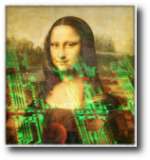Problem
Conventional Wikis have proven to be very usable and useful to support communities, but one of their main limitations as they are applied to research in creativity and IT is their lack of support for different media types. A consequence of this limitation is that communities (particularly those who are not focused on text) have only limited means to describe the research contributions in a variety of ways. In order to make all voices heard in a community of collaborating researchers, a socio-technical environment is needed that allows all stakeholders to contribute in ways that fits their tasks and the stakeholders’ way of thinking and expressing themselves.
Vision
The proposed research will create environments that transcend existing Wikis (being primarily focused on hypertext) to permit the integration (not just attachment) of other forms of media ranging from movies and animations, to sharing of datasets, to the creation and utilization of social network information to support community interaction, to conceptual mind-mapping media.
Proposed Research
The proposed research will
- examine how current wiki-like environments are limited in supporting the different ways in which creative people might represent and contribute to a body of knowledge and study what other types of objects, context and interfaces (beyond hyperlinked text) would be desirable, usable, and useful;
- Study what other types of objects, beyond the objects supported by current environments, would be useful: e.g., mind maps, videos, anecdotes/stories, etc in addition to hyperlinked text and images; and how could these be designed to allow them to be readily and rapidly developed and extended by participants;
- Explore what are different “modes” of use for this type of environment—how does support for face-to-face activities tie in to the community memory, now are on-line synchronous, asynchronous activities different in the forms of support required;
- Investigate what the role of Seeding, Evolutionary Growth and Reseeding (based on our SER model) are in incubating, extending, and sustaining a community and their extended memory artifacts; and
- utilize new paradigms (such as the emerging Web 2.0 framework) for developing systems that are open and extensible, permitting the inclusion of new forms of information and representation within the community memory.
Technical Challenges
The challenges will be to develop architectures that are open enough to permit the integration of new forms of media quickly and easily, with an emphasis on content over form except where the need for new forms are essential to express the content. The ability to extend and build upon previously contributed artifacts, which is a critical element to the wiki ohana (the wiki family), will bring issues of extending tool availability and integration in interesting ways.
Requirements for Wiki 2.0 include:
- improving communication and collaboration between heterogeneous communities (which we have labeled “communities of interests” bringing different communities of practice together [Fischer & Ostwald, 2005];
- supporting communities to tackle ill-defined wicked problems by supporting the integration of problem framing and problem solving [Rittel, 1984];
- real time capture and integration of hybrid material into a reusable group memory [Conklin et al., 2006];
- exploring the value and necessity of incremental formalization and reseeding [Shipman & McCall, 1994]; and
- transforming the resulting content into the right representational formats for different stakeholders [Fischer, 2001];
Social Challenges
There is overwhelming evidence that better technological substrates are necessary but they are not sufficient to create and sustain community and social networks. We will ground our proposed technological development in the following “social constraints”:
- incentives and rewards for participation: we will explore how to create socio-technical environments informed by identified challenges: (1) social capital; (2) gift cultures; (3) specific incentives model as explored in Expert Exchange (http://www.experts-exchange.com/);
- participatory design approaches to avoid that “we built it and they do not come” [Smith & Farquhar, 2000];
- linkages of Wiki 2.0 with other activities such as workshops, scheduled online discussion forums; and
- the importance of planned future events and activities that provide a incentive and motivation for participation
Last modified 7 December 2007 at 11:26 am by hodie |
